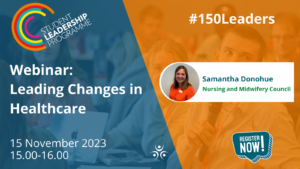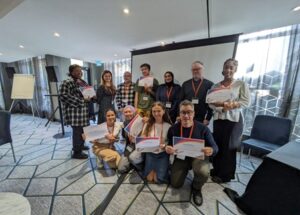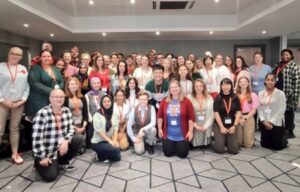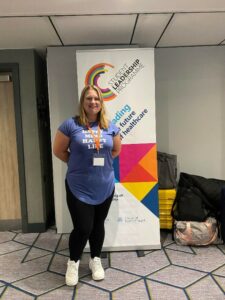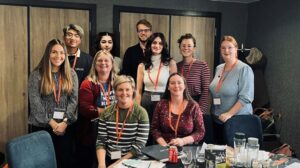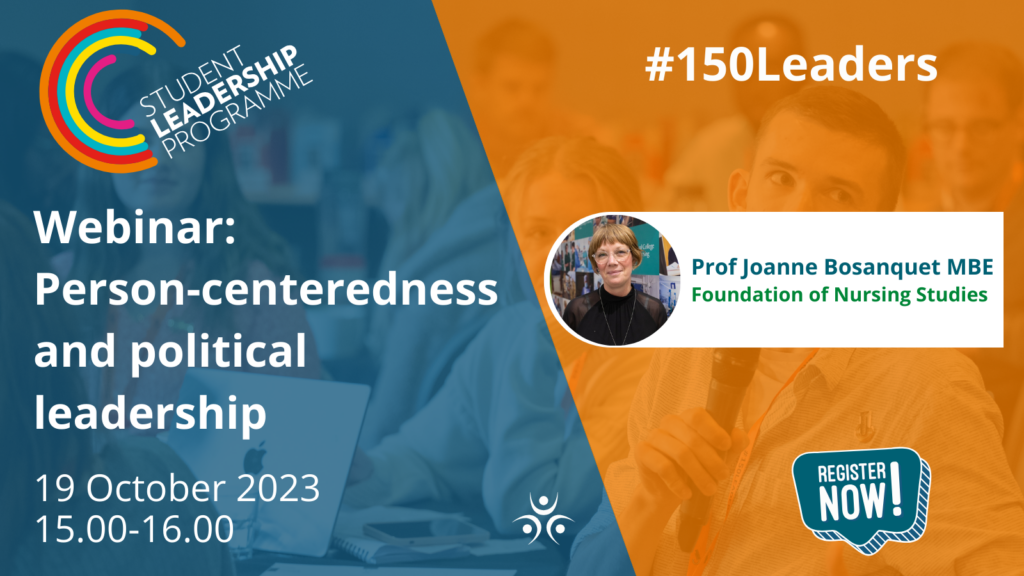Rachel, Student Midwife at University of Surrey and one of the #150Leaders, was invited by the APPG University group and Universities UK at the New NHS Longterm Workforce Plan Launch, to reflect on challenges met by healthcare students. In this blog, Rachel shares her experience and suggests areas for improvement within healthcare education.
Following on from the fantastic 150 Leaders conference in Manchester this September, I was approached by Universities UK with the incredible opportunity to speak at parliament. As UUK and the NHS launch the new Longterm Workforce Plan, they wanted to hear from a student directly about what it is like to be a healthcare trainee in the current UK landscape. As well as hearing from a host of thoughtful speakers including NHS training leads and the minister for health and secondary care Will Quince, I was deeply touched by the reception to my speech regarding the harsh realities of being a student midwife training in the NHS today.
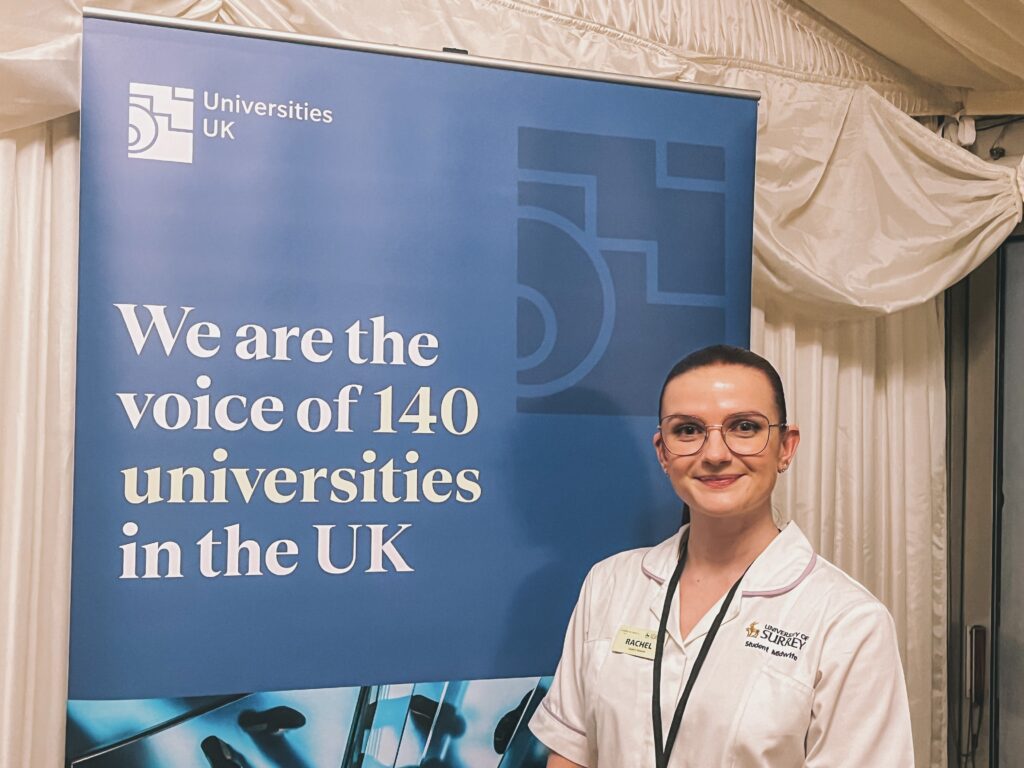
Being a healthcare student is not without its difficulties both physically and mentally, as we work tirelessly to maintain relationships, friendships and coursework all on top of a very demanding hospital placement schedule. However, I also wanted to highlight the unwavering support my university has shown as I inch closer towards qualifying. The resources available at the University of Surrey are invaluable, with state-of-the-art simulation suites available for booking whenever we want to practice our clinic skills, something that the new Longterm Workforce Plan fully endorses. Being a student midwife is one of my greatest and most cherished achievements and to see such recognition for the work being done by healthcare students across the country and across disciplines is immensely encouraging.
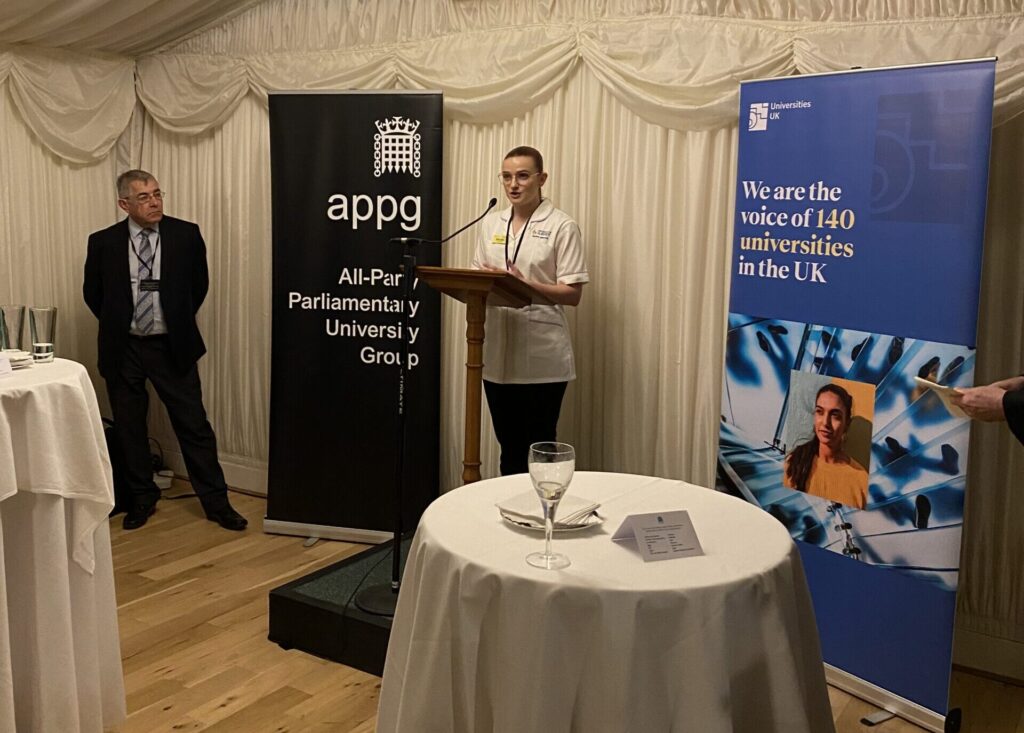
Allowing student voices to be heard is an integral part of facilitating an open dialogue that benefits all within the healthcare education system. Being able to discuss the realities of placement and how students can be better supported throughout their degree is essential to retaining healthcare students and making them feel valued. Following this event, I am hopeful that there will be positive changes to the health sciences curriculum that foster growth and development as well as protecting students’ mental health. Having the opportunity to speak at the Houses of Parliament is something I will never forget, and I am very appreciative to the Council of Deans for Health’s 150 Leaders Programme for providing students with the skills and network to have experiences such as these and use them to encourage positive change for all students across the UK.
The NHS Longterm Workforce Plan was published on Monday 30th October with more information here: Education leaders sound warning on future of healthcare (universitiesuk.ac.uk)
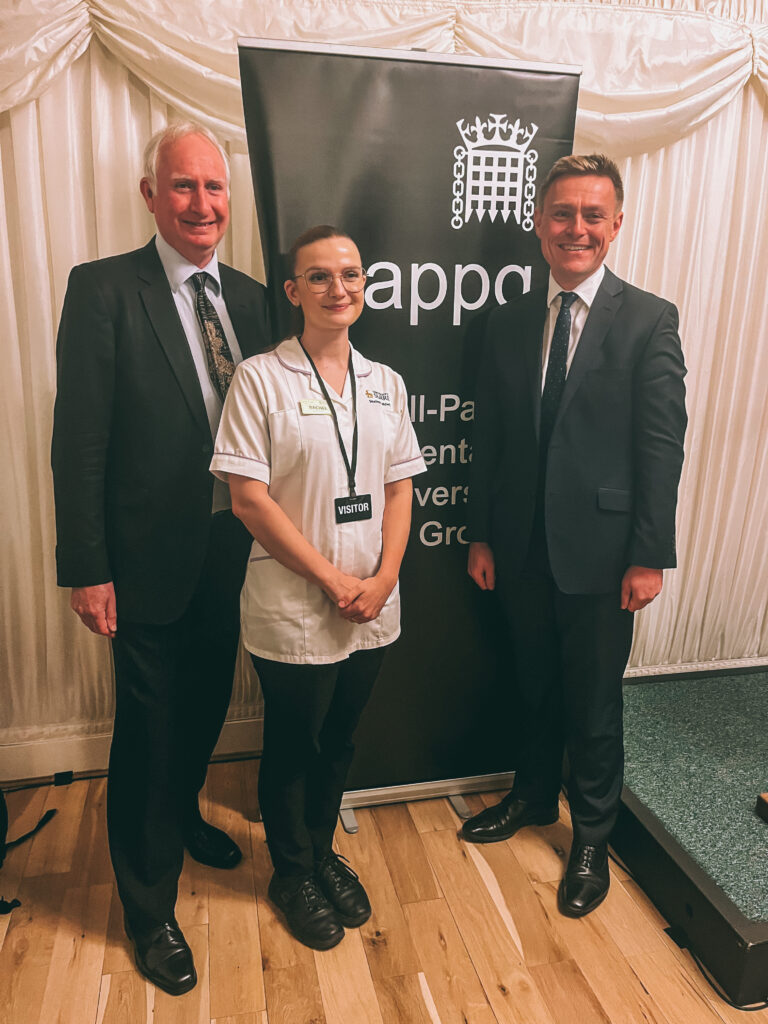

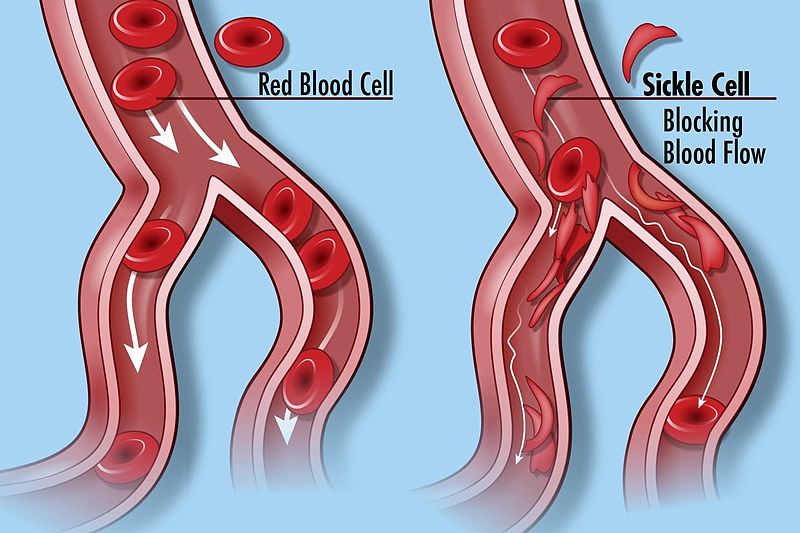
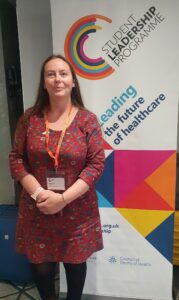
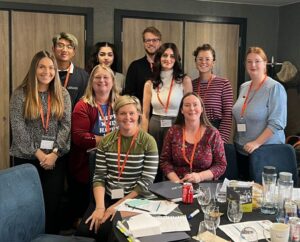
 Oftentimes as a student I have felt like that, ‘just a student’. Only learning, so nothing to offer, to show or teach others. It can feel immensely difficult at times to see myself as more than that. I have a strong passion for making changes within the health service. As a student though, this desire can seem so far away, almost intangible.
Oftentimes as a student I have felt like that, ‘just a student’. Only learning, so nothing to offer, to show or teach others. It can feel immensely difficult at times to see myself as more than that. I have a strong passion for making changes within the health service. As a student though, this desire can seem so far away, almost intangible.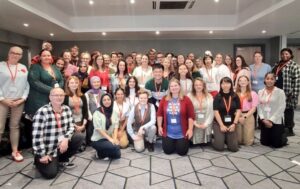
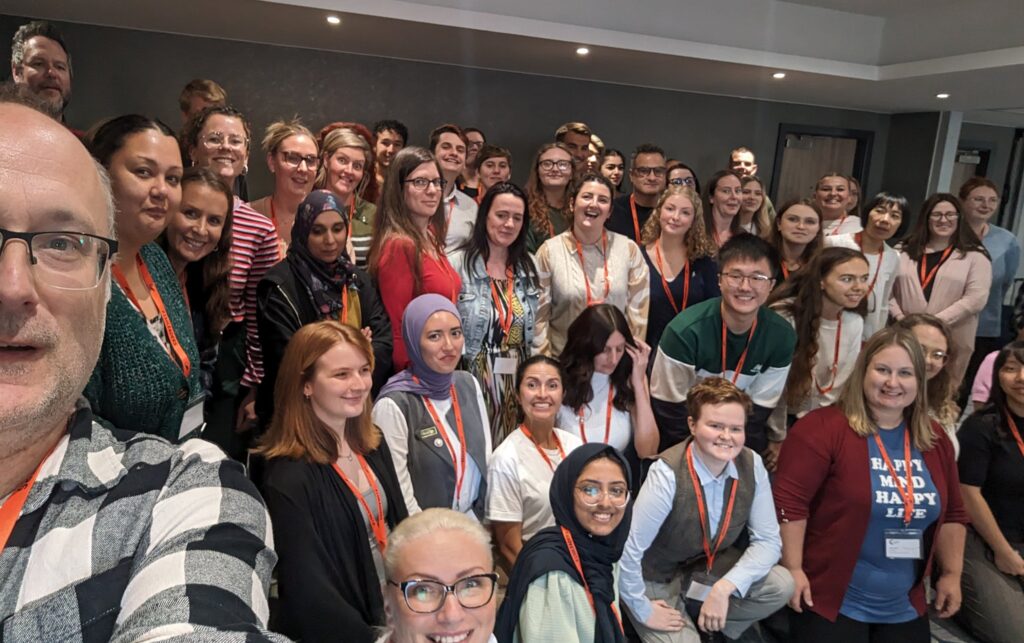
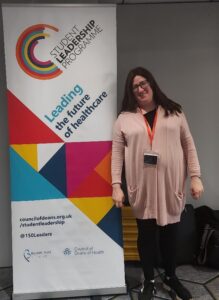
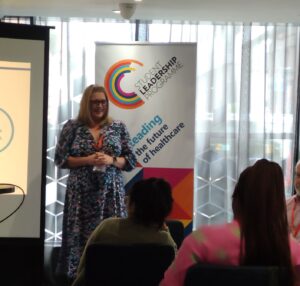 Rachel Moses OBE, a Consultant Respiratory Physiotherapist, led a powerful session on imposter syndrome. She reminded us that “no one can give you as much positive feedback as yourself.” We explored topics such as leadership, confidence, diversity, and the importance of self-recognition.
Rachel Moses OBE, a Consultant Respiratory Physiotherapist, led a powerful session on imposter syndrome. She reminded us that “no one can give you as much positive feedback as yourself.” We explored topics such as leadership, confidence, diversity, and the importance of self-recognition.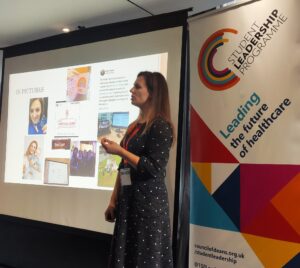 The second day started with a hearty breakfast and a touch of Manchester sun. The day’s first presentation was led by Raluca Oaten, a 150 Leaders alumni and Intensive Care Nurse, whose commitment to driving change was truly inspirational. She emphasised the significance of being part of a team that values authenticity and encourages vulnerability, leaving us with a powerful reminder: “always know who you are and what your values are.”
The second day started with a hearty breakfast and a touch of Manchester sun. The day’s first presentation was led by Raluca Oaten, a 150 Leaders alumni and Intensive Care Nurse, whose commitment to driving change was truly inspirational. She emphasised the significance of being part of a team that values authenticity and encourages vulnerability, leaving us with a powerful reminder: “always know who you are and what your values are.”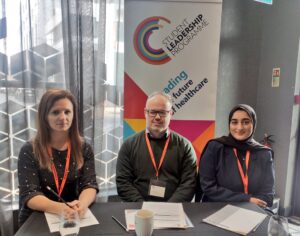 Next, we engaged in a ‘Dragons Den’ activity where each group pitched ideas on how to support healthcare students to a panel of judges composed of Raluca Oaten, Jon Eames from the Council of Deans and Ismat Khan, a Diagnostic Radiographer and one of the 150Leaders Alumni. This activity taught us valuable lessons in teamwork, active listening, and gaining insights from others’ experiences.
Next, we engaged in a ‘Dragons Den’ activity where each group pitched ideas on how to support healthcare students to a panel of judges composed of Raluca Oaten, Jon Eames from the Council of Deans and Ismat Khan, a Diagnostic Radiographer and one of the 150Leaders Alumni. This activity taught us valuable lessons in teamwork, active listening, and gaining insights from others’ experiences.